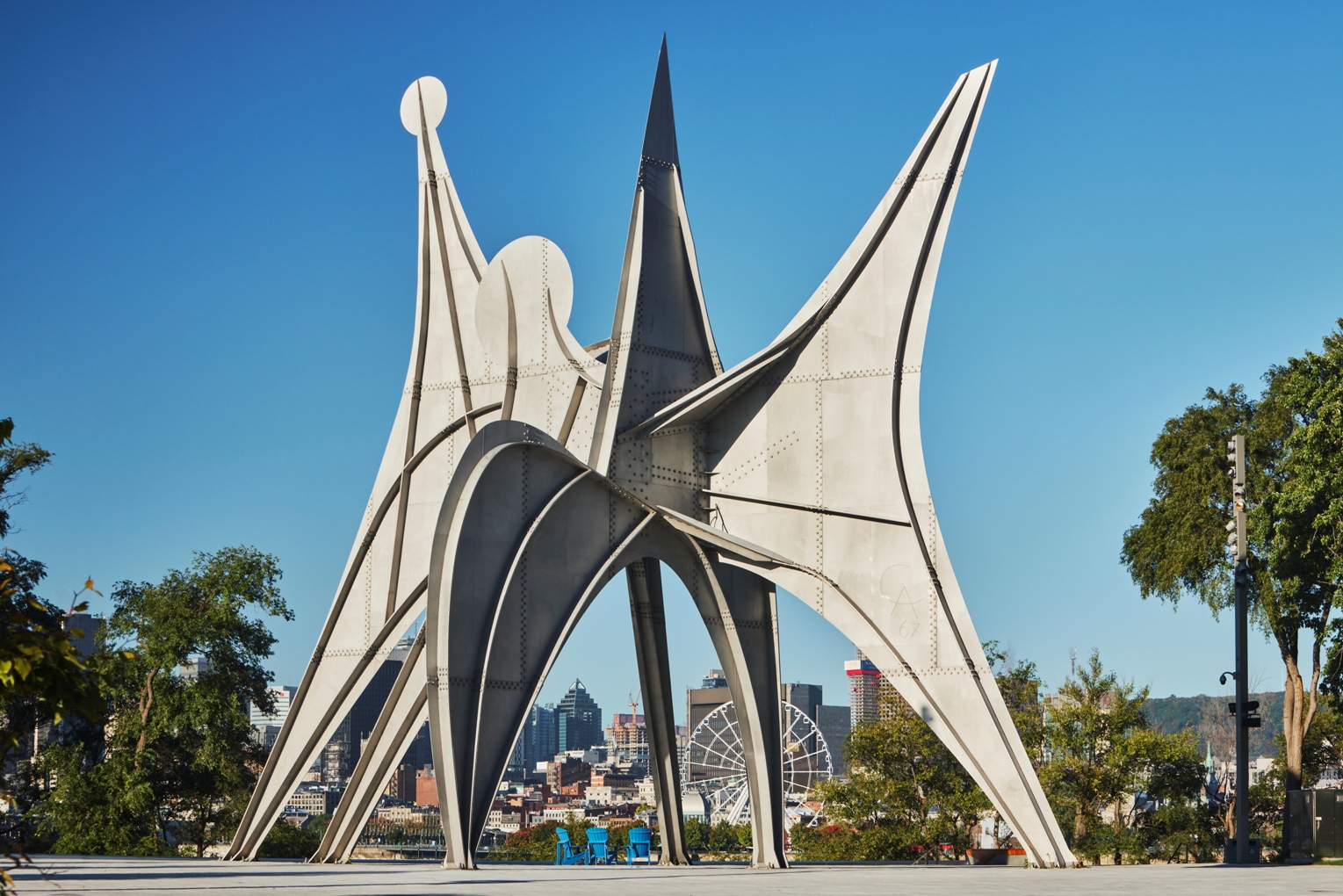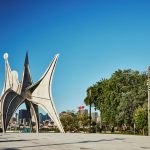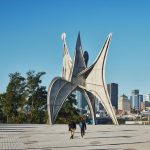

Alexander Calder, born in 1898 in Lawnton, Pennsylvania, came from a family of artists: his father, Alexander Stirling Calder, and his grandfather, Alexander Milne Calder, were sculptors, and his mother, Nanette Lederer Calder, was a painter. He trained as an artist at the Art Students League of New York from 1923–25. Considered one of the foremost sculptors of the twentieth century, Calder left his mark in the public space with his “mobiles” and “stabiles.” The latter word, coined by Jean Arp, refers to Calder’s stationary works. In his later years, he made monumental stabiles composed of simple forms anchored to the ground, which are found, among other places, in Berlin, Chicago, Jerusalem, Paris, Mexico City, and Seattle. Alexander Calder died in New York in 1976.
Artwork description
Alexander Calder’s sculpture Trois disques is composed of arched legs made of unpolished stainless steel. The overlapping arches stand on six slender posts that culminate with two points and three disks. With its abstract form, the structure – asymmetrical but balanced – creates plays of shadow and light that evoke dance movements. The sculpture evokes human progress and power.
Its site – it was moved in 1991 to the belvedere in Parc Jean-Drapeau on Île Sainte-Hélène build to receive it, 300 metres from its original site – allows the public to circulate around the work and view it from different angles, from near and far. Over the years, it has become an important landmark in the Montréal landscape. Although a number of cities have purchased a Calder stabile, the one in Montréal is unique. At a height of 22 metres, it is the second tallest stabile (after the one in Mexico City, which is 24 metres in height). At the request of the International Nickel Company of Canada, it is not painted, which also makes it the only example of an unpainted monumental stabile. Therefore, Trois disques shows off the raw material, the elements of assembly, and the traces of its fabrication in a frankly industrial aesthetic. In short, human labour and genius can be seen in Calder’s imposing sculpture.




